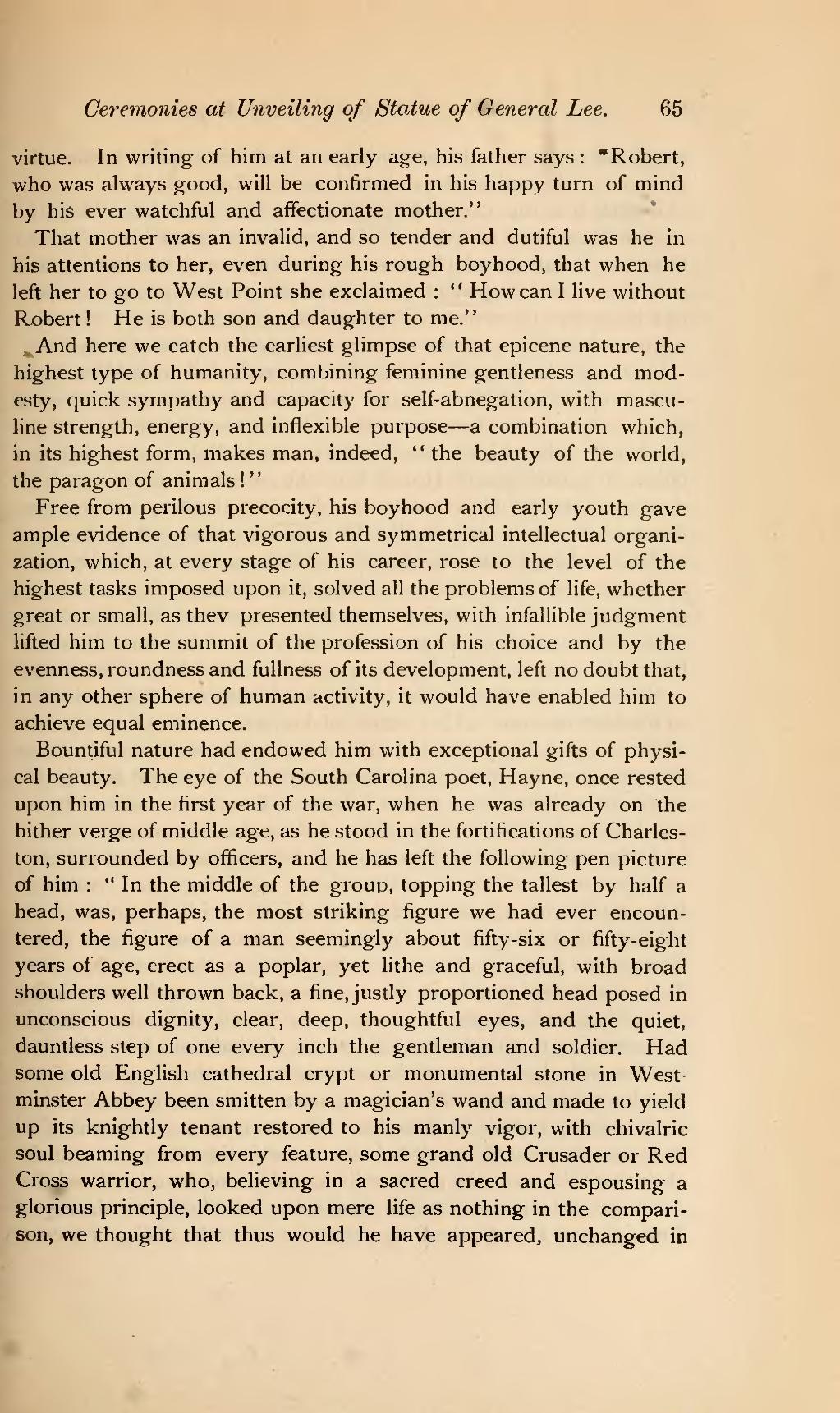Ceremonies at Unveiling of Statue of General Lee. 65
virtue. In writing of him at an early age, his father says : "Robert, who was always good, will be confirmed in his happy turn of mind by his ever watchful and affectionate mother."
That mother was an invalid, and so tender and dutiful was he in his attentions to her, even during his rough boyhood, that when he left her to go to West Point she exclaimed : " How can I live without Robert ! He is both son and daughter to me."
, And here we catch the earliest glimpse of that epicene nature, the highest type of humanity, combining feminine gentleness and mod- esty, quick sympathy and capacity for self-abnegation, with mascu- line strength, energy, and inflexible purpose — a combination which, in its highest form, makes man, indeed, " the beauty of the world, the paragon of animals ! "
Free from perilous precocity, his boyhood and early youth gave ample evidence of that vigorous and symmetrical intellectual organi- zation, which, at every stage of his career, rose to the level of the highest tasks imposed upon it, solved all the problems of life, whether great or small, as they presented themselves, with infallible judgment lifted him to the summit of the profession of his choice and by the evenness, roundness and fullness of its development, left no doubt that, in any other sphere of human activity, it would have enabled him to achieve equal eminence.
Bountiful nature had endowed him with exceptional gifts of physi- cal beauty. The eye of the South Carolina poet, Hayne, once rested upon him in the first year of the war, when he was already on the hither verge of middle age, as he stood in the fortifications of Charles- ton, surrounded by officers, and he has left the following pen picture of him : " In the middle of the group, topping the tallest by half a head, was, perhaps, the most striking figure we had ever encoun- tered, the figure of a man seemingly about fifty-six or fifty-eight years of age, erect as a poplar, yet lithe and graceful, with broad shoulders well thrown back, a fine, justly proportioned head posed in unconscious dignity, clear, deep, thoughtful eyes, and the quiet, dauntless step of one every inch the gentleman and soldier. Had some old English cathedral crypt or monumental stone in West- minster Abbey been smitten by a magician's wand and made to yield up its knightly tenant restored to his manly vigor, with chivalric soul beaming from every feature, some grand old Crusader or Red Cross warrior, who, believing in a sacred creed and espousing a glorious principle, looked upon mere life as nothing in the compari- son, we thought that thus would he have appeared, unchanged in
